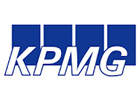Newly appointed or inexperienced FDs and FCs often need help to play an active part and add value to the rest of the business. They may know transaction processing and management accounts practices inside out but they may be isolated from what is really happening within the business.
The same can be said for FDs and FCs who have ‘grown up’ with the business. Long-serving Finance staff often stay doing things the way that the company has always done things. They can be blinkered and unaware of how things have moved on in the outside world.
In my own case, my first move out of the profession from KPMG was into a business that grew from start up to become a £100m turnover multi-site manufacturing business within 10 years. That rate of growth meant that I was forced into areas that I had literally no knowledge of during my life as a senior auditor in the profession. One day I would be dealing with a lease for a new sales branch office, the next I might be visiting a potential supplier to negotiate new plant &machinery, the next I might be dealing with Trading Standards.
That set the theme for the rest of my career. I have always worked alongside sales, supply chain, manufacturing and warehousing and logistics teams. I bridge the gap between finance and the rest of the business. I have the skillset to make the finance team more commercially aware and the rest of the business more financially aware.
That experience is not taught in accountancy training. You only gain a commercial approach when you have done it on the job. That might take years. Or, if you are lucky, someone can coach you how things knit together and how a FD or FC can add value to the business. That is what the Mentoring service is all about. showing your staff how to make the figures come alive, how to add value, how to be better members of the team.
The Mentoring and Coaching service can be fully tailored to the needs of your business and your FD/FC. It might be provided periodically (eg) one day a week or two days a month etc or you might prefer a full week programme initially followed by one day or half day a month followed by as-and-when-needed support.
The areas that seem to bring the most added value are:
- Bringing budgets alive so there is a full suite of who needs to do what to achieve the budget
- Monthly departmental reports – showing how each department is performing versus budget and last year / last quarter so that the departmental managers take pride and ownership and reduce inefficiencies
- Sales trend reporting (by channel, by customer, by product) so that declining sales levels are pinpointed at the earliest possible time
- A suite of margin management reports – margin by division, by territory, by product, by customer. This shows where margin has been achieved and highlights where action needs to be taken
- Stock Management reporting – highlighting how imbalanced the stock profile has become and where we are under or over stocked – and forming the base for a corrective action programme
- Purchasing reports showing how the price of all key raw materials and services is moving (versus budget and last year / last quarter)
- Warehouse reports (by team and by individual) showing how picking and packing and replenishment performance has moved compared with previous periods and budget























